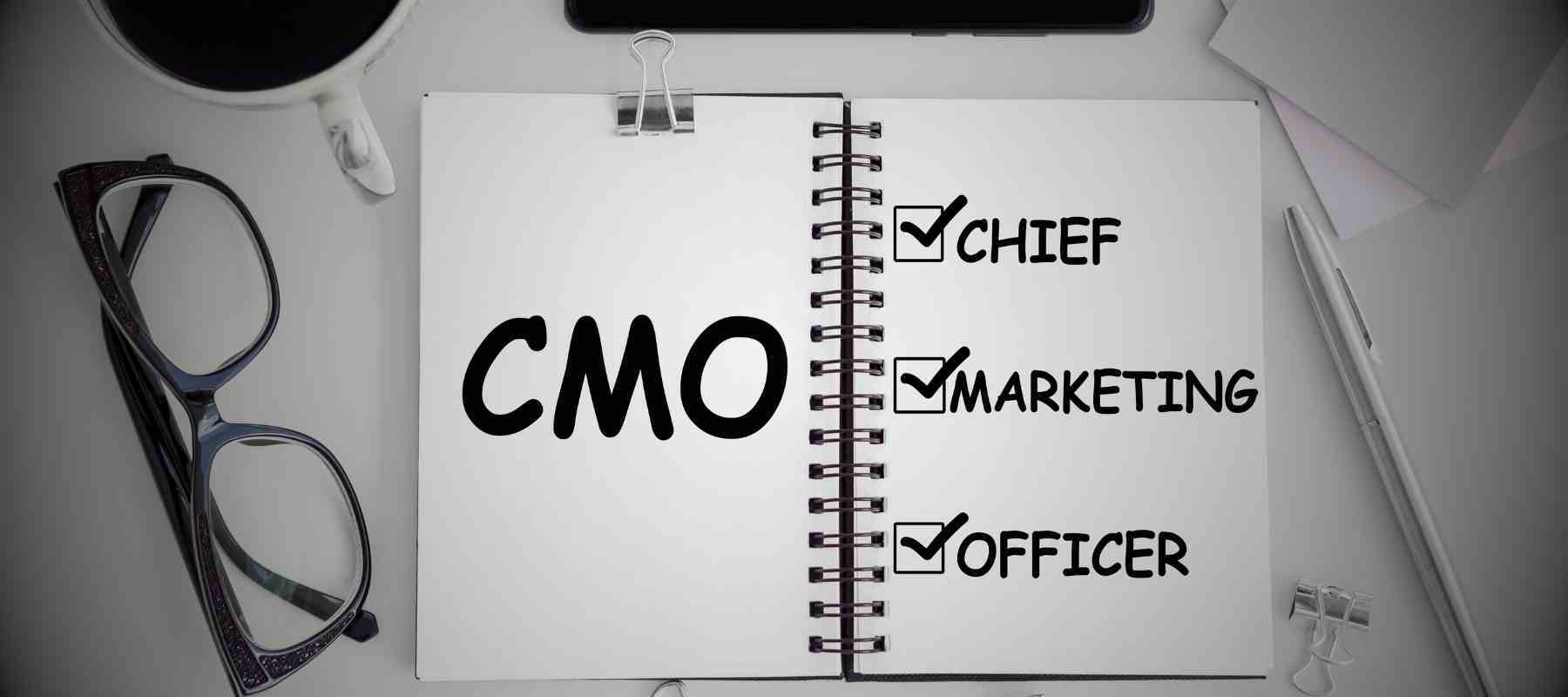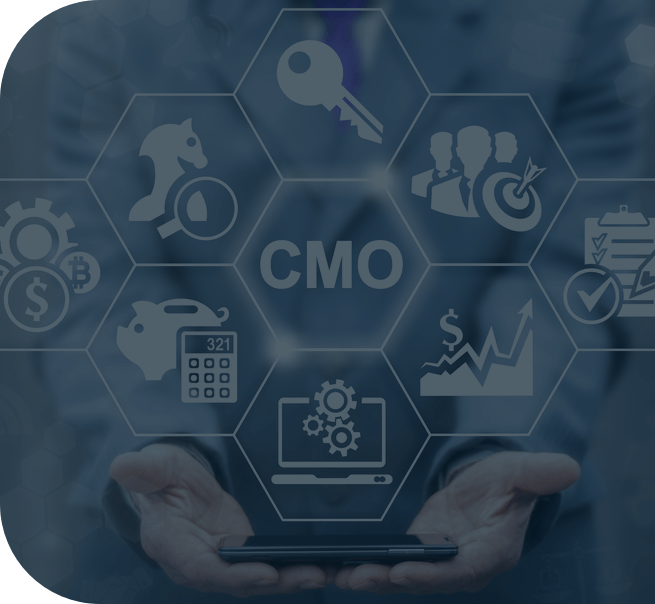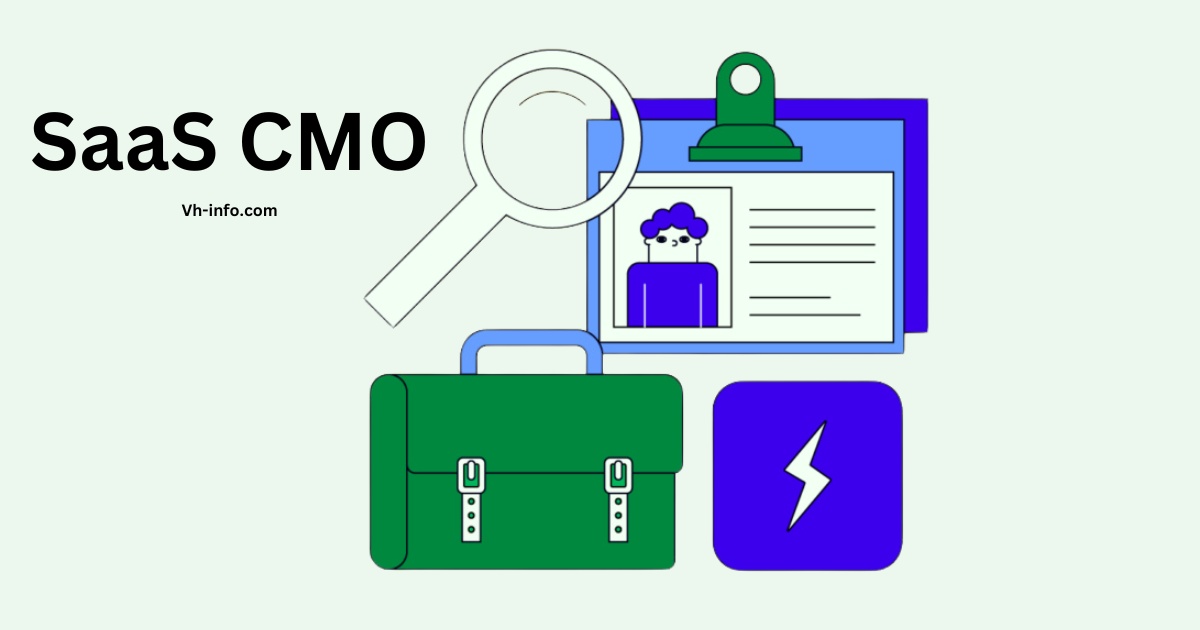In the fast-paced SaaS industry, where innovation drives growth, the role of a Chief Marketing Officer (CMO) has become indispensable.
A SaaS CMO is not just another marketing executive; they are a pivotal part of the company’s leadership team, bridging the gap between product development, marketing efforts, and revenue growth.
This article delves into the responsibilities, skills, and strategies that define a successful SaaS CMO.
What is a SaaS CMO?

A SaaS Chief Marketing Officer (CMO) is a senior marketing leader responsible for overseeing all marketing activities within SaaS companies.
Unlike CMOs in other industries, a SaaS CMO focuses on demand generation, customer acquisition, retention strategies, and aligning marketing initiatives with the unique business model of subscription-based software services. Their role requires extensive experience in product marketing, performance marketing, and social media strategies tailored specifically for SaaS marketers.
Why is a SaaS CMO Important?

- Strategic Vision and Business Alignment: A SaaS CMO plays a critical role in aligning the marketing function with the company’s overall business strategy. They collaborate with the executive team to ensure that marketing campaigns support the product roadmap and revenue goals.
- Customer Acquisition and Retention: Customer acquisition is at the heart of SaaS marketing. A skilled SaaS CMO develops inbound marketing strategies to attract new users while working closely with customer success teams to reduce churn rates and improve user experience.
- Revenue Growth Through Marketing: Using data-driven decision-making and targeted marketing strategies, a SaaS CMO directly impacts revenue growth. They optimize lead generation efforts and ensure that every marketing dollar spent contributes to measurable results.
What Does a SaaS CMO Do?

The responsibilities of a SaaS CMO extend beyond traditional marketing roles. They oversee brand strategy, content marketing initiatives, social media campaigns, and product positioning.
Additionally, they work with sales teams to align on lead generation goals and collaborate with product teams to refine the value proposition.
Key tasks include:
- Developing comprehensive marketing strategies.
- Managing the marketing budget to maximize ROI.
- Leading content creators in creating compelling messaging.
- Monitoring key performance indicators (KPIs) like Customer Acquisition Cost (CAC) and conversion rates.
Key Skills and Traits of a Successful SaaS CMO

- Leadership and Communication Skills: A successful SaaS CMO must inspire their marketing team while effectively communicating with the leadership team. Their ability to articulate a clear vision ensures alignment across different roles within the company.
- Expertise in Analytics and Data-Driven Decision-Making: In today’s data-rich environment, knowledge of analytics tools is non-negotiable. A SaaS CMO uses metrics such as retention rates and lead generation performance to guide their decisions.
- Adaptability to Technological Changes: The SaaS industry is evolving rapidly. A competent CMO stays ahead of trends in social media marketing, inbound strategies, and emerging technologies to maintain a competitive edge.
How to Hire The Best SaaS CMO?

To hire the best SaaS CMO follow these:
- Defining Your Business Needs: Before hiring a SaaS Chief Marketing Officer, it’s essential to identify your company’s specific needs. Are you looking for expertise in content marketing or someone who excels in performance marketing?
- Creating an Effective Job Description: A well-created job description should highlight the desired skill set, years of experience required, and familiarity with key areas like demand generation and brand identity development.
- Interview Process and Key Questions to Ask: During interviews, focus on assessing candidates’ ability to handle budget constraints while driving growth. Questions about their approach to KPIs like CAC or their experience working with sales teams can provide valuable insights.
Strategies For SaaS CMOs

- Building Relationships With Stakeholders: Collaboration is key for a SaaS CMO. Building strong relationships with sales teams, product teams, and other stakeholders ensures cohesive execution of marketing initiatives.
- Developing Effective Marketing Campaigns: From social media campaigns to content-driven inbound marketing efforts, creating targeted strategies is important for reaching the right audience.
- Using Data For Decision-Making: A data-driven approach allows CMOs to refine their strategies based on measurable outcomes such as lead conversion rates or customer lifetime value.
Metrics and KPIs For a SaaS CMO

Customer Acquisition Cost (CAC)
Customer Acquisition Cost (CAC) measures how much a SaaS company spends on marketing efforts, sales team activities, and other marketing functions to acquire a new customer. A SaaS CMO uses this set of metrics to evaluate the efficiency of their marketing budget. Keeping CAC low while ensuring high-quality leads is critical for sustainable growth in the SaaS business model.
Retention and Churn Rates
Retention rates show how well a SaaS company keeps its customers over time, while churn rates measure the percentage of customers who stop using the product.
A SaaS Chief Marketing Officer collaborates with customer success teams to improve user experience and reduce churn. High retention rates indicate strong customer satisfaction, which directly impacts revenue and brand loyalty.
Lead Generation and Conversion Rates
Lead generation tracks how effectively a SaaS marketing team attracts potential customers through inbound marketing, content marketing, and social media campaigns. Conversion rates measure how many of those leads turn into paying customers.
A SaaS CMO ensures that the marketing strategies align with the sales team’s goals to drive conversions, making these metrics a direct impact on revenue growth.
Challenges Faced By SaaS CMOs

- Evolving Customer Behavior: Customer behavior in the SaaS industry is constantly changing due to technological advancements and the increasing influence of social media. SaaS CMOs must adapt their marketing strategies to meet shifting preferences, such as the demand for personalized user experiences and instant gratification. Managing large sets of customer data and extracting actionable insights is essential for staying relevant and improving customer success.
- Competition in the SaaS Market: The SaaS market is highly competitive, with numerous companies offering similar products. To stand out, SaaS CMOs must focus on innovative marketing strategies, clear product positioning, and building a strong brand identity. Collaborating with the product and sales teams is important to differentiate offerings and create a compelling value proposition that resonates with the target audience.
- Balancing Budget Constraints With Growth Goals: SaaS CMOs face the challenge of achieving ambitious growth goals while managing limited marketing budgets. They must prioritize cost-effective marketing activities like inbound marketing and performance marketing to optimize lead generation and customer acquisition. The efficient allocation of resources ensures that every marketing initiative contributes directly to revenue growth without overspending.
FAQ’s:
How Does a SaaS CMO Differ From Other CMOs?
A SaaS Chief Marketing Officer focuses specifically on the unique business model of subscription-based software.
Unlike CMOs in other industries, a SaaS CMO prioritizes metrics like retention rates, churn rates, and recurring revenue. They also work closely with product teams and customer success teams to align marketing strategies with the product roadmap and user experience.
What Are The Top Metrics a SaaS CMO Should Focus On?
Key metrics for a SaaS CMO include Customer Acquisition Cost (CAC), retention rates, churn rates, and lead generation performance.
These metrics help measure the effectiveness of marketing campaigns, customer satisfaction, and overall revenue growth. Monitoring these KPIs ensures that marketing efforts directly impact the company’s success.
How Important is Data Analytics For a SaaS CMO?
Data analytics is essential for a SaaS CMO to make informed decisions about marketing strategies and performance marketing efforts.
Analyzing metrics like conversion rates and customer behavior allows them to refine campaigns and allocate the marketing budget effectively. A data-driven approach ensures that every marketing initiative aligns with business goals.
Can You Succeed As a SaaS CMO Without a Technical Background?
While having a technical background can be helpful, it’s not mandatory to succeed as a SaaS CMO. Strong leadership skills, extensive experience in SaaS marketing trends, and the ability to collaborate with product development teams are more critical. A good understanding of the target audience and the ability to adapt to technological changes are key to excelling in this role.
Conclusion
The role of a SaaS Chief Marketing Officer is critical in driving growth and aligning marketing efforts with the unique needs of SaaS companies.
From managing customer acquisition costs and improving retention rates to collaborating with sales teams and product teams, a SaaS CMO ensures the marketing function delivers measurable results.
Their focus on data-driven decision-making, brand strategy, and product positioning helps SaaS businesses stand out in a competitive market.
Despite challenges like evolving customer behavior and budget constraints, skilled SaaS CMOs use their extensive experience to create impactful marketing strategies.
Whether it’s refining the product roadmap, optimizing inbound marketing, or leading content creators, their contributions have a direct impact on revenue growth and brand awareness.
For SaaS startups or large enterprises looking to scale, having strong marketing leadership at the executive level is essential to achieve long-term success.

